When you are going out for a camping trip, packing the right food items surely makes all the difference between a smooth and a frustrating camping experience.
While it is important to know what food to take for camping, it’s equally important to know what food you should not bring when camping because many foods can spoil and ripen quickly and become a reason for your camping failure.
In this article, I will explain why you should avoid certain food items and give the reasons behind these recommendations.
Table of Contents
Importance of Choosing the Right Food for Camping
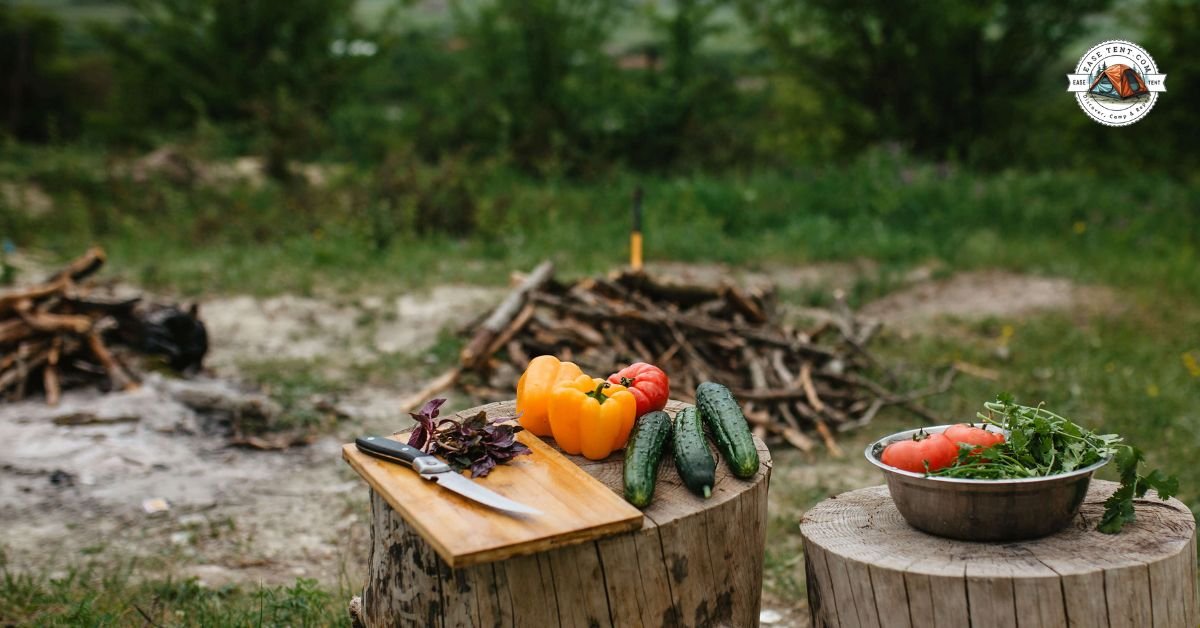
According to my years of camping experience, knowing what you need to bring for camping and what you should avoid packing for outdoor trips is a sign of a stress-free and enjoyable journey. So, choosing the right food is one of the most critical decisions you’ll make and it is not just about satisfying your stomach it is about ensuring you have the energy with overall mental and physical clarity of well-being.
The meal you can pack may break or make your adventure tone by giving unnecessary stress, spoiling food, or sometimes attracting unwanted wildlife.
By carefully choosing your meals, you allow yourself to focus on the beauty of nature rather than worrying about what’s in your cooler.
Perishable Foods
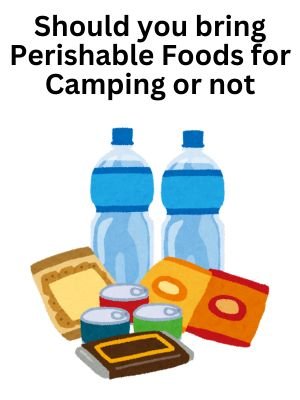
Perishable foods are the items that spoil quickly if you do not keep them at the right temperature. So, bringing these foods on a camping trip might prove a risky and challenging decision. Let’s dive into some examples of perishable foods and the reasons why they might not be the best choice for your adventure.
Examples
Fresh Dairy Products like Milk, cheese, and yogurt are extremely temperature-sensitive food items and these items require refrigeration to stay safe and fresh. If you don’t take care of these products they can spoil rapidly.
Raw Meat such as; Chicken, beef, and fish are prone to bacterial growth, and if you don’t store them in any cold area they can spoil. Furthermore handling raw meat also increases the risk of contamination.
Seafood like fresh fish and shellfish is also a highly perishable thing and it can quickly lead to foodborne illnesses if you do not store them correctly.
Eggs
Although eggs can be slightly stable items they still require refrigeration. In the heat of a campsite, they can become a breeding ground for harmful bacteria. So, make sure to avoid them.
Why Not Bring
Bringing perishable foods on a camping trip can lead to numerous headaches. Imagine arriving at your campsite with the eagerness to cook a delicious meal, only to find that your food has spoiled.
Spoiled dairy or meat can cause food poisoning, leading to unpleasant symptoms like nausea, diarrhea and sometimes vomiting. This is not just uncomfortable but could potentially ruin your entire trip.
Furthermore, without proper refrigeration, you face the constant worry of keeping your food at a safe temperature. This requires extra equipment, like coolers with ice packs, which adds weight and bulk to your gear.
Foods That Attract Wildlife

When you’re out in the wild, one of the last things you want is an unexpected visit from the local wildlife. Certain foods can act like a beacon, drawing animal’s right to your campsite. It might sound thrilling at first, but trust me, this is a thrill that you want to avoid.
Examples
The mouthwatering aroma of strong-smelling foods like bacon, sausages or even fish isn’t just appealing to you but it also attracts bears, raccoons, and other hungry critters.
Some of the Sugary Snacks e.g. Candy, chocolate, and sugary drinks are like candy to bears, raccoons, and even ants. Once they catch a smell, they’re coming straight for you.
Scented Fruits
The sweet and fruity scent of ripened fruits like Apples and bananas is hard to resist, especially for animals with a strong sense of smell. So, make sure to not keep any ripened fruit within your tent because it will not just attract wildlife but also produce some bad odor around your campsite.
Why Not Bring
Picture this: You’re sitting around a campfire and relishing the beauty of nature when suddenly, a noise in the bushes turns into a full-on bear digging through your cooler. Terrifying, right? Bringing foods that attract wildlife can lead to these sorts of dangerous and even life-threatening situations.
Animals, especially those in the wild, have an incredibly heightened sense of smell. What might seem like a small snack to you could be a feast for them. Once they identify the source of the smell, they won’t hesitate to investigate. This can result in anything from annoying insects entering your space to more serious encounters with larger animals like bears.
Moreover, feeding wildlife, even unintentionally, disrupts their natural behavior. It makes them dependent on human food, which can lead to aggressive behavior when they don’t get what they expect. It also poses a danger to future campers who may encounter animals conditioned to seek out human food.
Foods That Require Extensive Preparation
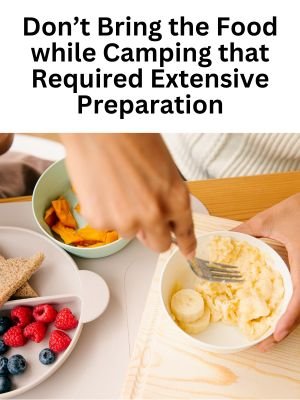
For me, camping is all about simplicity, relaxation, and enjoying the great outdoors. Spending hours preparing a meal does not appeal to anyone when you could be hiking, fishing, or simply soaking in the beauty around you.
That’s why it is best to be aware of foods that require extensive preparation so you should not include them in your trip meal plans.
These foods may turn your outdoor adventure into a kitchen marathon.
Examples
Whether it’s for pizza, bread, or pastries, fresh dough requires kneading, rising, and baking.
While it might sound fun for some people who are planning to go with their families or friends, so it’s up to you to decide whether to bring or avoid it.
Certain Pastas
Certain fancy homemade pasta dishes with multiple ingredients and sauces. These will not just require boiling but also need careful mixing and timing to get everything just right.
Gourmet Dishes
Meals that require multiple steps, such as searing, sautéing, and simmering. Think of elaborate stews, risottos, or dishes with complex sauces.
Why Not Bring
Imagine arriving at your campsite after a long hike, tired and ready to eat, only to realize that your meal requires several hours of preparation. You’ll need to gather ingredients, prep everything, and then cook, all while managing a campfire or portable stove. Not only does this consume valuable time, but it also increases your fuel usage, which can be a precious resource when camping.
Another challenge is the need for extra equipment. Dishes that require extensive preparation often need more pots, pans, utensils, and even specific tools like rolling pins or baking sheets. This not only adds weight to your gear but also makes packing and cleaning up a bigger hassle.
And let’s be honest, no one wants to be stuck washing dishes in a stream when they could be enjoying a sunset.
There’s also the risk of things going wrong. Campfires and portable stoves don’t offer the precise heat control of a kitchen stove. This can lead to undercooked or overcooked meals, adding frustration to your experience.
Foods with Excessive Packaging
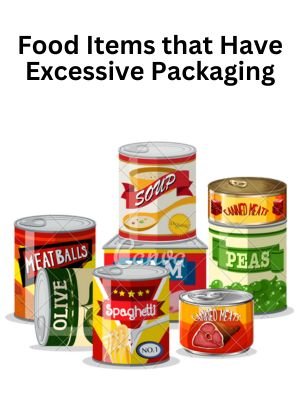
When you’re out in natural surroundings, one of the biggest goals for you is to leave no trace. The beauty of the wilderness is in its untouched, original condition, and it’s up to each camper to keep it that way. Unfortunately, some foods come with an unnecessary amount of packaging, which can quickly turn into a burden and an environmental hazard.
Examples
Single-Use Plastics
Individually wrapped snacks, plastic utensils, and single-serving containers. These are convenient but generate a lot of waste.
Canned Goods with Pop-Tops like Canned soups, beans, or meals are durable items but they’re heavy and bulky, and you’re left with a can to dispose of.
Why Not Bring
Bringing foods with excessive packaging not only messes up your campsite but also creates more waste that you’ll need to pack out.
Excessive packaging adds unnecessary weight to your gear. Cans, in particular, are heavy, and all that extra material takes up space that could be used for essentials like water, shelter, or clothing. When you’re hiking to a remote campsite, every ounce counts, and carrying a bag full of trash back out is the last thing you might want.
Moreover, food packaging is often not biodegradable. If even one wrapper is accidentally left behind, it can harm the environment and wildlife. Animals might mistake it for food, leading to choking or digestive issues, and it can take years for plastic to break down.
Choosing foods with minimal or no packaging is not only better for the environment but also makes your camping experience smoother and more enjoyable. Opt for bulk items, reusable containers, or foods that come with compostable or recyclable packaging.
By doing so, you’ll reduce your waste, lighten your load, and keep nature as beautiful as you found it.
If you have to bring some items with you, make sure to dispose of them properly in dedicated trash bins—because showing love for nature means leaving it as beautiful as you found it.
Sticky or Messy Foods
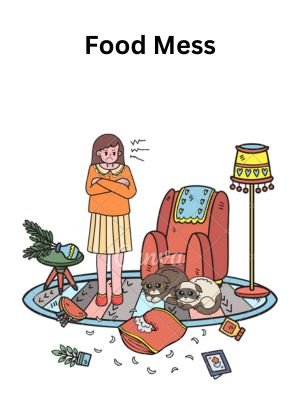
During outdoor trips, convenience and cleanliness are key to an enjoyable journey. Sticky or messy foods can quickly turn a simple meal into a sticky situation and create more hassle than they’re worth. While they might be tasty, these foods can cause unwanted problems in the great outdoors.
Examples
Maple syrups, caramels, and honey are undeniably delicious on pancakes and in desserts, but just one spill can leave you with a sticky mess that is really a hassle to clean up.
Peanut Butter
A camping essential for many folks, but it can be tricky to handle without getting it everywhere, especially in warm weather when it tends to get even stickier.
Why Not Bring
Sticky or messy foods increase the likelihood of attracting unwanted visitors, like ants, bees, or even larger animals. Once these creatures catch the scent, they can invade your campsite and make an unpleasant experience.
Moreover, cleaning up after sticky foods isn’t just a hassle—it can be nearly impossible to remove every trace, especially if it gets onto your gear or clothes. The residue left behind can attract wildlife even after you’ve packed away the food, posing a safety risk.
These items are difficult to manage while camping and tricky to pack because of their downsides. But here’s the thing: with a bit of thoughtful planning, you can totally make it work. Imagine the joy of enjoying your favorite meals out in nature—it’s definitely possible! It just takes a bit more care and preparation. So don’t be discouraged; with the right approach, you can bring along these goodies and savor them in the great outdoors.
Conclusion
As you prepare for your next camping adventure, carefully consider the food you pack to avoid unnecessary complications. By leaving behind items that spoil easily, attract wildlife, or require complex preparation, you’ll ensure a safer and more enjoyable experience. Remember, the key to a successful camping trip is simplicity and practicality. By knowing what food to avoid and why, you can focus on the beauty of nature and the joy of outdoor living, rather than dealing with the headaches of food-related issues. Happy camping!
You May Also Like
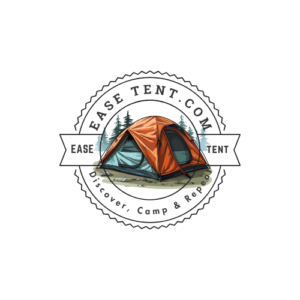
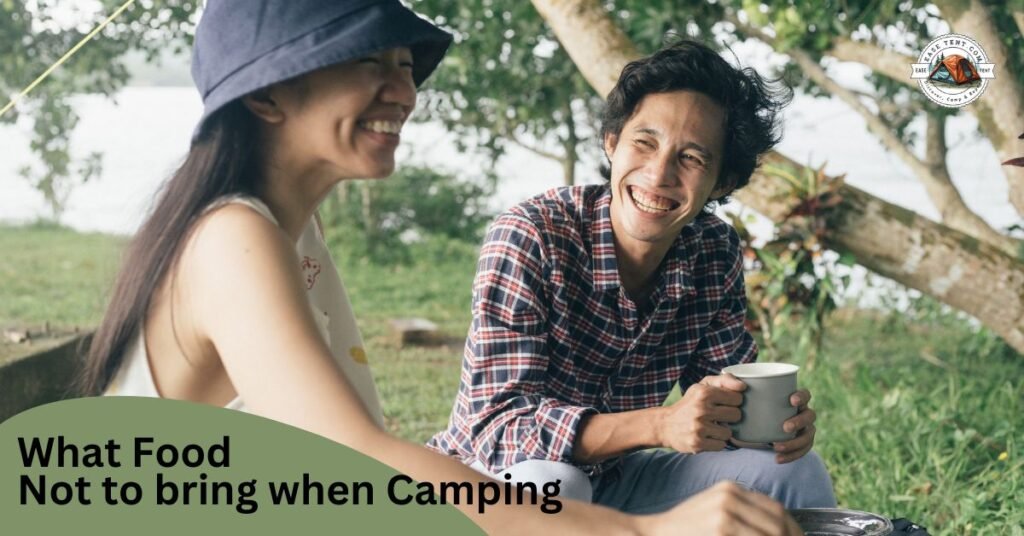
Pingback: Simple Tricks to Keep Camping Gears Dry - Rainy Camping
Pingback: Camping in Foggy Weather: Magical Trip or Hidden Risk?